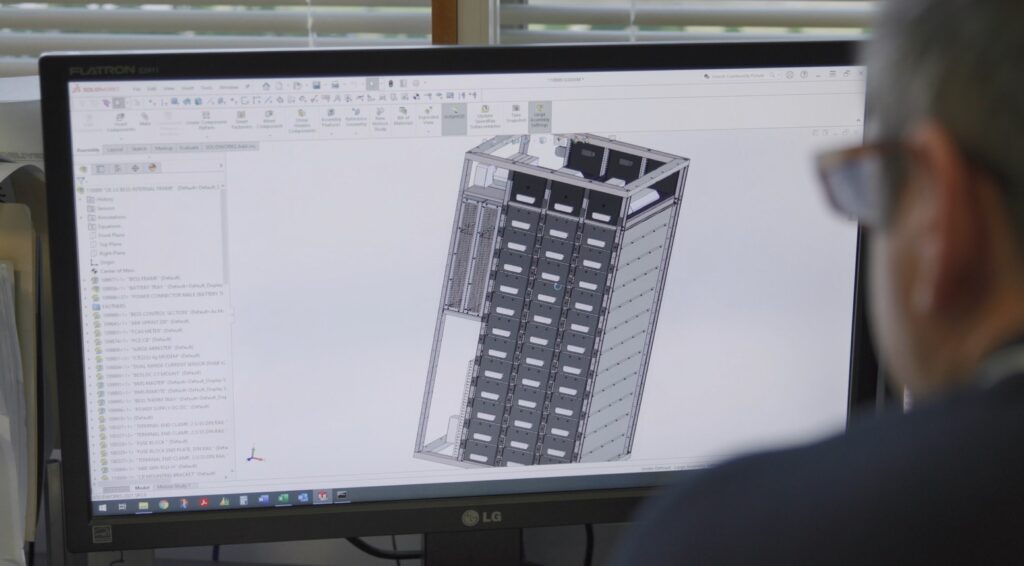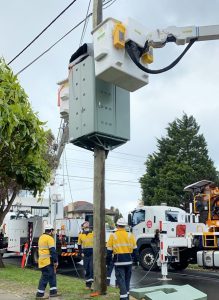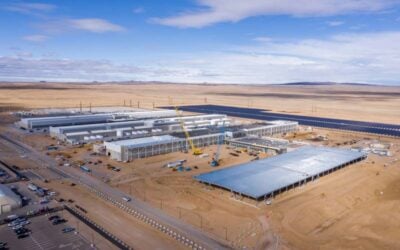
Batteries will be mounted on electricity poles across the low voltage distribution network and aggregated as a virtual power plant (VPP), in a project which will trial their ability to integrate more renewable energy in two regions of Victoria, Australia.
Distribution network company United Energy has dubbed the community battery project ‘Electric Avenue’. A fleet of 40 batteries, each of 30kW / 66kWh (two-hour duration) and 1 metre x 2 metre in size, will be deployed later this year on United Energy’s distribution transformer poles. Sites have been selected in east and south east Melbourne and the nearby Mornington Peninsula.
Enjoy 12 months of exclusive analysis
- Regular insight and analysis of the industry’s biggest developments
- In-depth interviews with the industry’s leading figures
- Annual digital subscription to the PV Tech Power journal
- Discounts on Solar Media’s portfolio of events, in-person and virtual
The latter is also where renewables developer Maoneng is planning a 240MW / 480MWh large-scale battery project, due to the highly seasonal demand fluctuations for energy in an area popular with holidaymakers.
The batteries on poles will perform a number of important functions to help manage local energy demand, with the locations picked due to the network experiencing congestion. Their main application will be to manage demand at each transformer, which will enable United Energy to defer spending on augmenting them to meet peak demand.
They will also allow for more rooftop solar PV to be connected to the grid and regulate network voltage. Two batteries have already been successfully installed last year, leading to the wider rollout. United Energy said the first three of the new fleet will be installed and commissioned later this year. Batteries used will be custom-made by local power electronics manufacturer Thycon, designed to resemble and be integrated with the existing distribution transformers.
The batteries will charge at off-peak times and when local solar production is abundant. Energy can then be exported when solar generation tails off and when demand is high. Essentially, it means locally produced solar can be shared across neighbourhoods.
In addition, energy retail company Simply Energy will lease the batteries’ capacity and use from United Energy when the distribution provider doesn’t need them. Aggregating the devices into its own VPP programme, Simply Energy can play them into market trading opportunities.
The Australian Renewable Energy Agency (ARENA) said today that it will be providing AU$4 million (US$2.85 million) funding towards the project’s total expected cost of AU$10.98 million. United Energy will fund the remainder. According to ARENA, with the Electric Avenue providing not only services to stabilise the network and integrate solar but also aggregation into Simply Energy’s VPP, the trial will serve as an important demonstration of how the multiple benefits of battery storage can be ‘value stacked’.
“A community battery is a way of storing energy that can then be used locally when it is needed. It is a great way of ensuring solar PV exports from homes in the community are consumed locally,” United Energy general manager for electricity networks Mark Clarke said.
“From a network perspective, it also helps defer traditional investment so can save money for customers on future network tariffs. This helps us deliver more reliable and renewable electricity to our customers and support Victoria’s emissions reduction targets.”
The project joins a number of different types of community battery trials across Australia.







